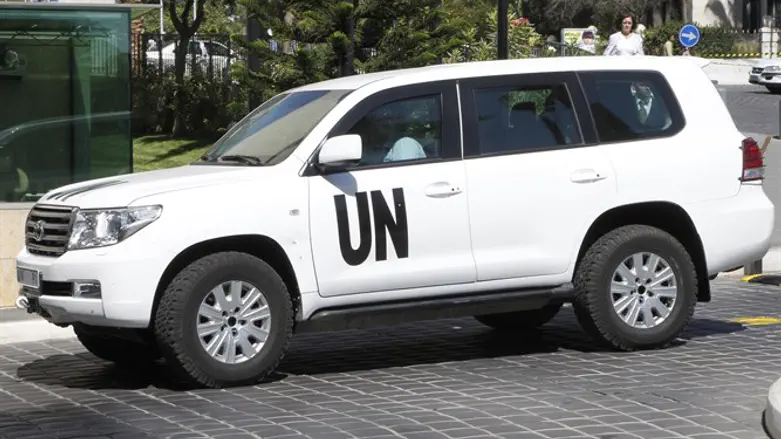
The UN Security Council on Monday extended the mandate of a panel investigating chemical attacks in Syria until November 18 to allow time to negotiate a one-year renewal of the probe, AFP reported.
The council unanimously backed a U.S.-drafted resolution on the short extension as a bigger battle loomed over the findings of the one-year investigation, which showed Syria had used chemical weapons.
The United Nations-Organization for the Prohibition of Chemical Weapons (OPCW) panel has concluded that government forces carried out three chemical attacks on villages in 2014 and 2015.
The government in Damascus argues that claims that it used chemical weapons against civilians are only meant to "serve political agendas", and has accused rebels of using chemical weapons.
The panel identified the 253 and 255 squadrons of the 63rd helicopter brigade, which flew from the Hama and Humaymim air bases, and the 628 squadron based in Humaymim as the perpetrators.
Russia has dismissed the findings of the joint investigative mechanism (JIM) as "unconvincing" and said no sanctions should be imposed on Syria for the chlorine gas attacks.
Britain and France are pushing for sanctions and maintain that UN resolutions clearly provide for such action in response to the use of chemical weapons.
"We consider this renewal as a necessary step, but only a first step," said French Ambassador Francois Delattre, according to AFP.
"There are more cases of chemical weapons use in Syria, and so it is absolutely critical that the JIM gets later a one-year mandate to continue its investigation," he added.
The Security Council agreed to set up the so-called joint investigative mechanism (JIM) in August 2015 to determine who was behind the chlorine attacks using barrel bombs.
The use of chlorine as a weapon is banned under the Chemical Weapons Convention, which Syria joined in 2013 under pressure from Russia, an ally of Syrian President Bashar Al-Assad.
Russian Ambassador Vitaly Churkin said the JIM should look more closely at "chemical terrorism" by armed groups and extend its mission to neighboring Iraq.
The UN-OPCW panel also found that the Islamic State (ISIS) group in Syria used mustard gas as a weapon in August 2015.
